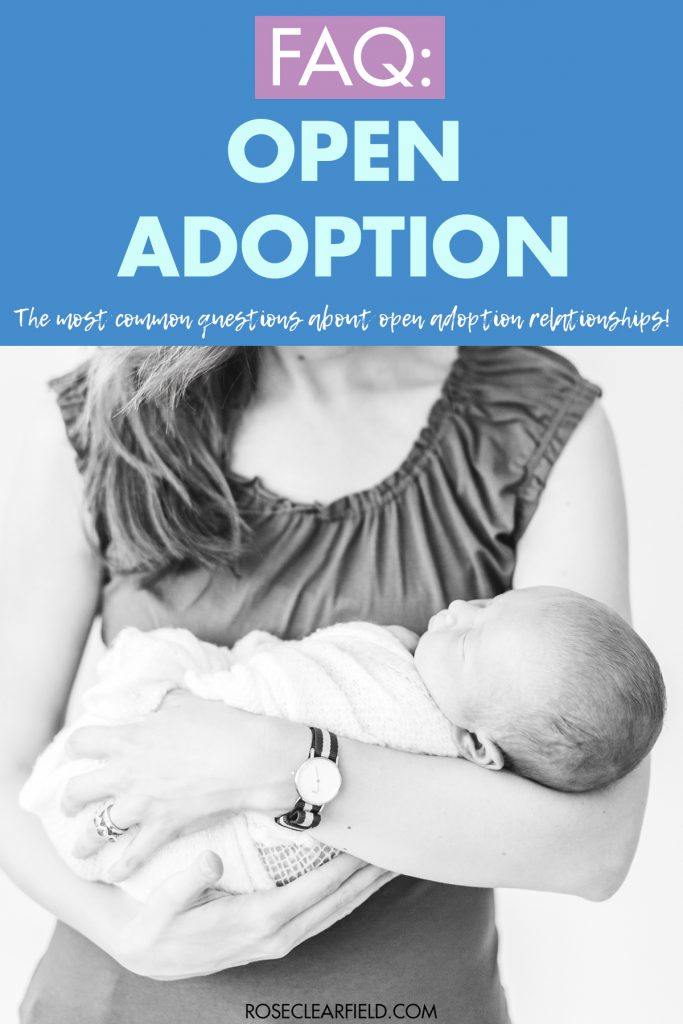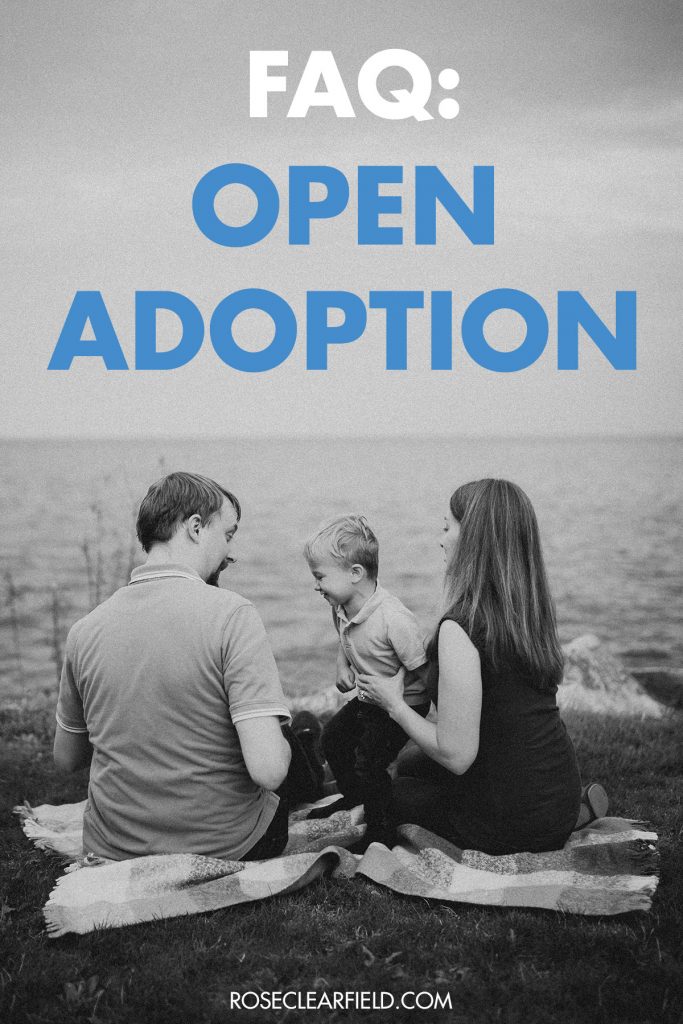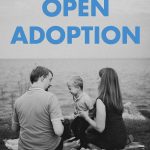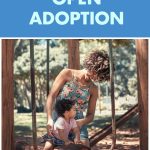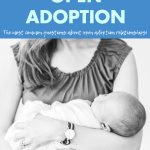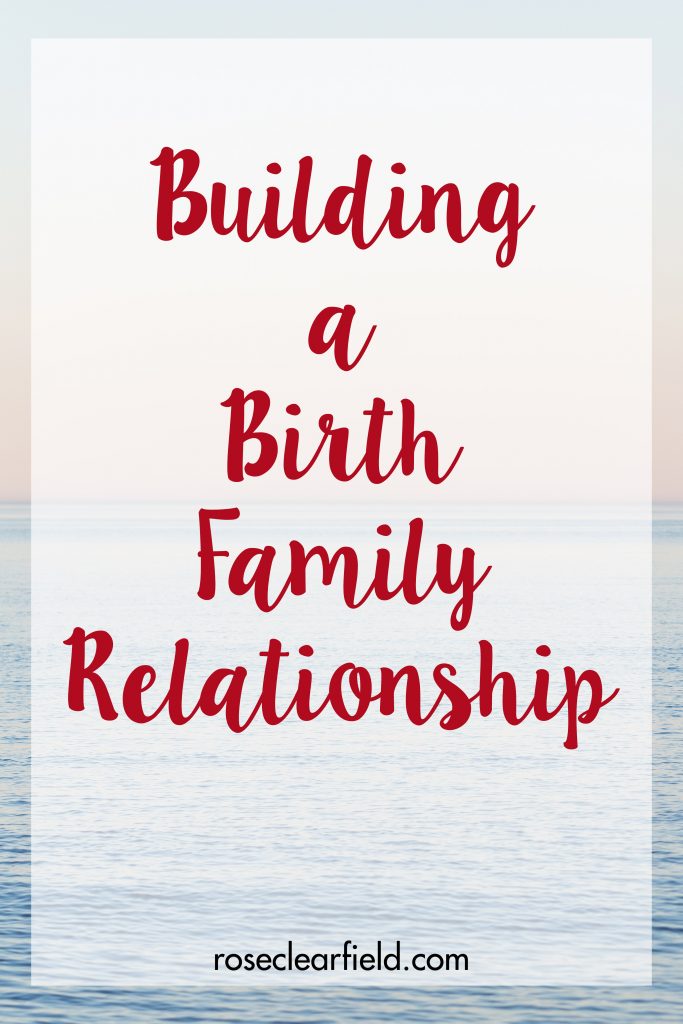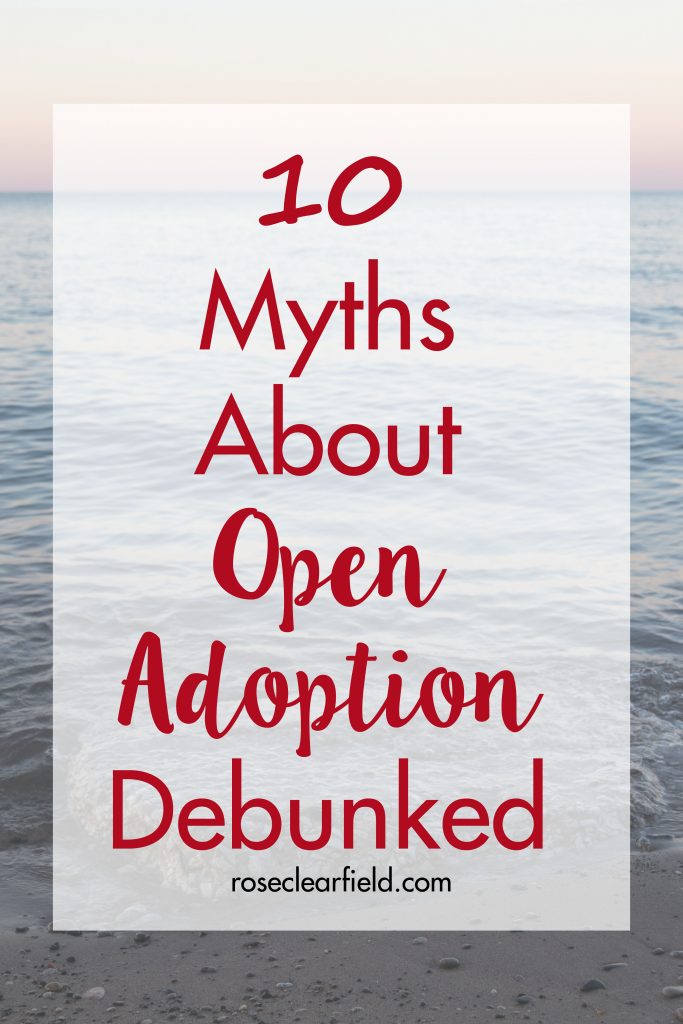I get a lot of questions about open adoption. I’ve put together an FAQ about open adoption to record all of my best answers to frequently asked questions about open adoption in one comprehensive resource.
As a little background before I get into the FAQ, as of writing this post, I have one adopted son. We have a very open relationship with his birth mom and her family. It involves seeing two or more birth family members almost every month and communicating with them monthly, if not weekly, via text. I wrote a guest post about open adoption with more detail about our open adoption relationship.
When we started pursuing adoption, I had no idea that there are so many misconceptions about open adoption. It creates a lot of confusion and results in numerous well-meaning friends, family, and random strangers asking weird and sometimes offensive questions about your family’s open adoption situation.
I’ve created an FAQ about open adoption, answering the most frequently asked questions I get, to help all parties who would like to learn more about open adoption. This list includes, but isn’t limited to, the following.
- Couples/families pursuing domestic infant adoption considering open adoption
- Couples/families in open adoption relationships who would like to get better at answering frequently asked questions about open adoption
- Family and friends who have loved ones with adopted children in open adoption relationships who aren’t sure how to talk about open adoption
As always, if there is anything that you’d like to see here, please let me know!
Isn’t it weird?
Initially, it was a little weird, mostly because it was brand new and we were all still processing a lot of emotions coming off the adoption. It was also a little weird because my son’s adoption happened very quickly. Less than two months after we first read my son’s birth parents’ profile, his birth mom and grandma were visiting my son at my house for the first time. None of us ever expected to navigate this type of scenario, and you don’t get a script for it.
Two and a half years later, it’s not weird. My son’s birth family has been nothing but supportive and respectful. They truly are like family, and I always look forward to seeing them. Tommy sees his birth family so often that it’s not awkward for him either. There is often some initial shyness during visits, but that’s true with many family members and friends at this stage of life.
Isn’t it hard for you?
The next time you find yourself asking adoptive parents whether or not any aspect of adoption is hard for them, take a step back and think about what it’s like for the birth family. Open adoption is no exception. The relationship will always be so many times harder for the birth family than it is for me and my family. I get to spend every single day with my son. I’m the one sending updates, photos, and videos, not receiving them. After visits with birth family, he comes home with me, not them.
With that being said, I’m extremely lucky that my son’s birth family has such a good rapport with him and with my family in general. Sometimes birth families come on too strong or try to overcompensate, which can make visits difficult. It can also be tough to plan visits with birth family when you have multiple children and the birth family makes the visit all about their biological child. Your other child may end up feeling left out. I don’t say these things to discourage you from planning birth family visits. I say them so that you’re aware of these possibilities and can plan accordingly.
Isn’t it hard for the birth family? How can they move on with their lives when they still see the child regularly?
Let me be clear that I’m not trying to put words in anyone’s mouth by answering this question. I’m speaking based on my own experience with open adoption and what I’ve seen my son’s birth mom go through the past few years. I’m an adoptive mom, not a birth mom, and I’m not trying to pretend that I know what it’s like to experience this personally from a birth parent’s or other birth family member’s perspective.
Obviously, having an open relationship is hard for birth families. However, it offers a couple of huge benefits that I believe outweigh the hardship. First, having an open adoption provides peace of mind about the well-being of their child. With an open adoption, there’s so much less mystery about where the child ended up, what the family is like, how the child is doing, etc. I think that having this information helps you move on much more easily than you would when you’re left wondering about everything.
Second, being open about the adoption allows birth family members to receive support from loved ones. Even telling a few trusted family members and friends gives them an outlet to discuss their thoughts and feelings and help them process their experiences and emotions. If birth family does have regular visits, having other family or friends along for the visits may prove beneficial as well.
The birth family can’t take back your son/daughter, right?
I mostly blame modern media for perpetuating the myth that birth family can take back their biological children at any time. However, once upon a time, birth parents had a much longer time period to change their minds about adoption and could come back months later to take the child. I think that these instances were still rare, but it was a possibility.
Today the period for terminating parental rights (TPR) varies from state to state. In most states, birth parents sign away their rights within seven days of the child being born. This process often takes place right in the hospital. In some states, birth parents have a full 30 days to sign away their rights.
Once the birth parents have completed TPR, they can’t take back a child. Period. There is nothing about open adoption that increases the risk of a birth parent taking a child. While media sources will lead you to believe otherwise, birth family kidnappings are virtually unheard of.
But don’t you worry about them taking back your son/daughter?
No, I don’t. Every adoptive family has full control over how much contact information they provide and where they have their visits. You don’t ever have to give out your home address or have visits at your house. Meeting in a neutral location, such as a restaurant or park, ensures your family’s privacy remains intact and often puts everyone at ease.
What’s it like with the birth mom and your son/daughter when you’re together?
I’m not sure what people are expecting me to say when they ask me this question. Having an open adoption isn’t like any other relationship in my life. It’s not like it feels like my son’s birth mom is another aunt or something. I’m not sure how to define it beyond this, especially in a few sentences in a public blog post.
Also, every open adoption relationship is different. Within a single adoptive family, if you have multiple adopted children with open adoption relationships, it will be really different with each kid. We’re close with my son’s birth mom and her family. We see them often. So it’s not weird. I love spending time with them and love seeing my son so comfortable with them. It certainly isn’t like that in every open adoption relationship. I feel extremely fortunate that this has been my experience.
Won’t your child get confused about who his real mother is?
I think it’s really sad that so many people give children so little credit. Kids understand familial relationships from an extremely early age. In a healthy open adoption, everyone involved understands their role and is respectful of it. With appropriate boundaries, there is no way that your adopted child will ever get confused about the role of his adopted mom versus the role of his birth mom.
From the time he was born, my son has always had a unique relationship with his birth mom. The way he looks at her is so different from how he’s ever looked at me. I don’t say this out of jealousy. It’s simply the reality of the situation and is honestly fascinating to me more than anything else. He’s been hearing her voice since he could first hear, and he looks like her and her family. So this shouldn’t come as a surprise to anyone.
On the flip side, I am the one with the role of “mom” in his day to day life, and he completely understands and respects this concept.
How will it work when your son/daughter gets older and knows that he/she is adopted?
I think it’s hilarious that people expect that I have everything worked out for my entire future of parenting adopted children. First, no parent has everything worked out about any aspect of parenting. Second, even with your best-laid intentions, you can’t predict the future. There are so many factors that will impact our open adoption, many of which are out of my control. I can’t possibly prepare for every possible open adoption scenario.
As far as the knowing he/she is adopted concept goes, our adoption agency encourages their adoptive families to start talking about adoption from birth. Adoptive children shouldn’t ever remember a time that they didn’t know that they were adopted. We agree with this practice and use it with my son. Between talking about adoption from birth and seeing birth family regularly, I fully believe that on some level, my son already knows he’s adopted. No, he can’t articulate it. But I think that those seeds are there.
Beyond this, we’re doing our best to lay a solid groundwork, so my son feels comfortable talking to us about adoption and is comfortable with his birth family. No, my son may not always come to me to talk about adoption. But I don’t ever want him to feel like he can’t because of my own hang-ups or discomfort.
Ultimately, it will be up to him to decide what sort of relationship he has with his birth family. Again, I’m doing my best to plant the seeds, so that whatever that relationship looks like, it will be a positive one.
Adoptive families, are there other FAQ about open adoption that you answer regularly?
I’d love your input on this topic!
Pin the FAQ about open adoption for easy access to this resource later!
